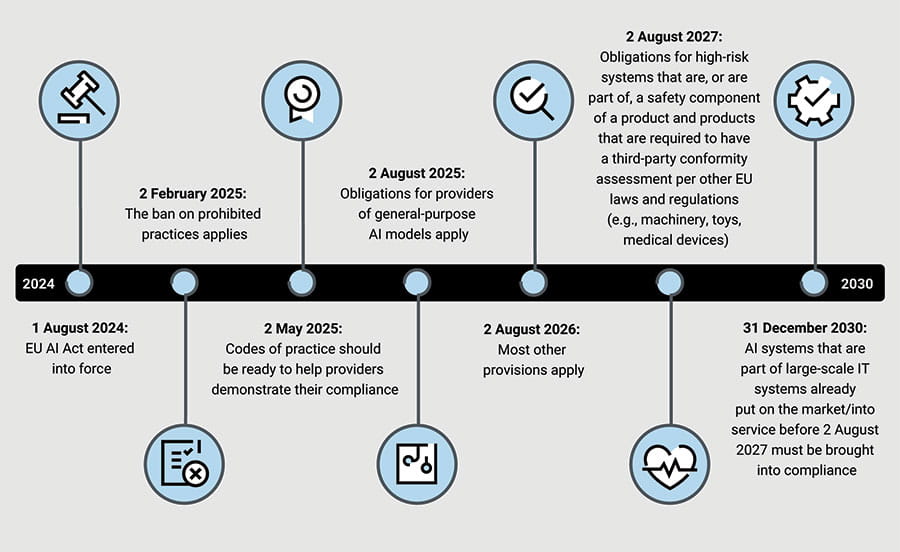The Impact of the EU AI Act on Medical Devices: Balancing Innovation and Challenges

**The Impact of the EU AI Act on Medical Devices: Balancing Innovation and Challenges**
The European Union’s Artificial Intelligence Act (EU AI Act) represents a significant regulatory framework aimed at ensuring the safe and ethical deployment of artificial intelligence technologies across various sectors, including healthcare. As AI continues to revolutionize the medical device industry, the EU AI Act seeks to balance innovation with the necessary safeguards to protect patient safety and privacy.
**Understanding the EU AI Act**
The EU AI Act, proposed by the European Commission in April 2021, is designed to establish a comprehensive legal framework for AI applications. It categorizes AI systems based on their risk levels—unacceptable, high, limited, and minimal—and imposes corresponding regulatory requirements. High-risk AI systems, which include many medical devices, are subject to stringent compliance measures to ensure their safety and efficacy.
**Implications for Medical Devices**
1. **Risk Classification and Compliance:**
Medical devices that incorporate AI technologies are likely to fall under the high-risk category due to their potential impact on patient health and safety. This classification mandates rigorous testing, documentation, and continuous monitoring to ensure compliance with the EU AI Act. Manufacturers must demonstrate that their AI systems are transparent, explainable, and free from bias.
2. **Innovation and Development:**
While the EU AI Act imposes additional regulatory burdens, it also provides a clear framework that can foster innovation. By setting high standards for safety and efficacy, the Act encourages developers to create robust and reliable AI systems. This can lead to increased trust among healthcare providers and patients, ultimately accelerating the adoption of AI-driven medical devices.
3. **Data Privacy and Security:**
The integration of AI in medical devices often involves the processing of sensitive patient data. The EU AI Act emphasizes the importance of data privacy and security, aligning with the General Data Protection Regulation (GDPR). Manufacturers must implement robust data protection measures, ensuring that AI systems handle patient information responsibly and securely.
4. **Ethical Considerations:**
The Act underscores the need for ethical AI development, requiring that AI systems respect fundamental rights and values. For medical devices, this means ensuring that AI-driven decisions do not discriminate against any patient group and that they contribute positively to patient outcomes.
**Challenges and Considerations**
1. **Regulatory Complexity:**
Navigating the regulatory landscape can be complex, particularly for small and medium-sized enterprises (SMEs) with limited resources. The need for compliance with both the EU AI Act and existing medical device regulations may pose challenges in terms of time and cost.
2. **Interdisciplinary Collaboration:**
Developing compliant AI medical devices requires collaboration between AI experts, healthcare professionals, and regulatory bodies. This interdisciplinary approach is essential to address the technical, clinical, and regulatory aspects of AI integration.
3. **Keeping Pace with Technological Advancements:**
The rapid pace of AI innovation presents a challenge for regulators to keep up with new developments. Continuous updates to the regulatory framework may be necessary to accommodate emerging technologies and ensure that regulations remain relevant.
**Conclusion**
The EU AI Act represents a pivotal step in regulating AI technologies within the medical device industry. By establishing clear guidelines and requirements, it aims to safeguard patient safety while promoting innovation. Although challenges exist, particularly in terms of compliance and regulatory complexity, the Act provides a foundation for the responsible development and deployment of AI-driven medical devices. As the healthcare landscape continues to evolve, the EU AI Act will play a crucial role in shaping the future of AI in medicine, ensuring that technological advancements benefit patients and healthcare systems alike.